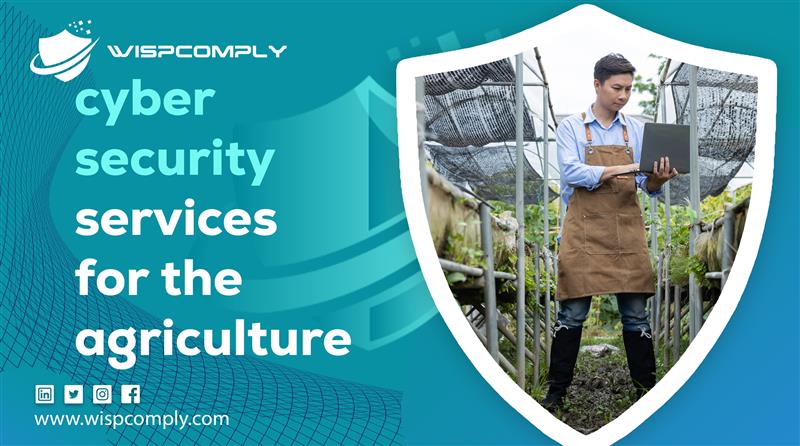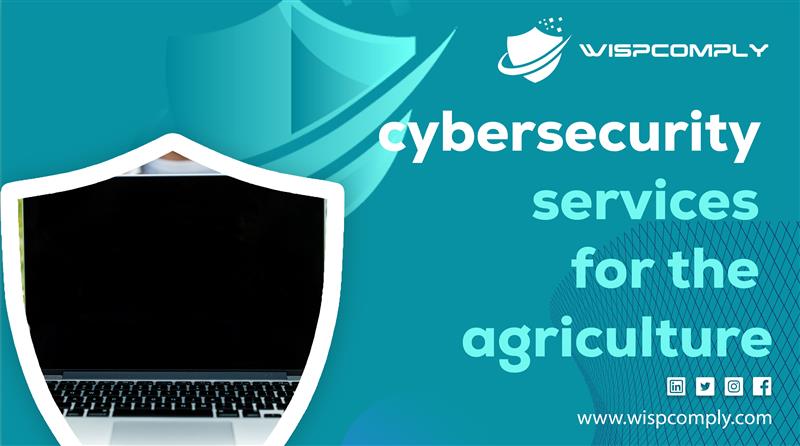
Table of Contents
The Guide to Cybersecurity Services for the Agriculture Industry
Welcome to the Information Age, where tractors are smart, irrigation systems are automated, and farm data travels through cyberspace faster than ever. Modern farming—often called precision agriculture—uses technology like drones, sensors, and smart software to boost crop yields and reduce waste. From soil monitoring to harvest logistics, this shift is known as AgTech, and it’s changing the face of farming.
But with great innovation comes serious risk. As farms and agribusinesses go digital, cyberattacks are rising. Hackers aren’t just targeting banks or big corporations anymore—they’re coming after farms. These attacks can freeze operations, steal valuable data, and even mess with food supply chains. It’s no longer a question of if a farm will face a cyber threat, but when.
This guide is here to help you understand what’s really happening behind the scenes and how to protect your farm with the right Cybersecurity Services for the Agriculture sector. From small farms to large cooperatives, everyone has a role to play in defending our food systems.
Understanding Cybersecurity Risks in Agriculture
Why Agriculture is a Target for Cyberattacks
Think farming is too low-tech for hackers? Think again. The agriculture industry has become a favorite target for cybercriminals, and here’s why:
- Smart machines are everywhere – IoT devices like soil sensors, irrigation systems, and GPS-guided tractors run on software and are often connected to the internet.
- Data is the new gold – Crop yields, planting schedules, supply chain data, and even financial records are stored digitally.
- Weak computer security – Many farms still rely on outdated systems and don’t have dedicated IT teams, making them easy targets for cybercrime.
This makes agriculture a high-value but low-protection industry—a dream for cybercriminals.
Common Cyber Threats Facing the Agriculture Industry
Let’s break down the threats farmers and agribusinesses face today:
- Ransomware – Hackers lock your files and demand money to unlock them. This can stop everything from machinery to food delivery.
- Data breaches – Personal or business data like vendor contracts and payment details can be stolen and sold.
- Supply chain attacks – Hackers don’t need to hit the farm directly; they can go after distributors, logistics companies, or vendors.
- Phishing scams – Fake emails can trick employees into clicking harmful links or giving away passwords.
- IoT hacks – Smart devices like tractors and irrigation tools can be hijacked, causing downtime or worse.
These threats affect not only the business but the broader food industry, leading to potential shortages or safety risks.
Real-World Examples of Cyberattacks in Agriculture
Here are some actual cases to show how real these threats are:
- A U.S.-based cooperative was hit by a ransomware gang called BlackCat, halting their grain operations for days.
- Another major meat supplier, JBS S.A., paid millions to restore access to its systems after a cyberattack.
- In one incident, GPS spoofing threw off autonomous tractors, showing how even cyberpunk themes like “fake satellites” can now be real threats.
These attacks hurt not just one farm but ripple through the entire supply chain.
Essential Cybersecurity Services for Agribusinesses
Network Security Solutions
Your farm’s internet connection is its digital fence. Here’s how to make it stronger:
- Firewalls and intrusion detection systems (IDS/IPS) watch for suspicious activity and block it.
- VPNs and secure Wi-Fi allow safe remote access to your smart farm tools.
Think of this as locking the barn before the thieves arrive.
Endpoint Protection
Your tractors, laptops, and even smartphones are entry points for hackers. Keep them protected with:
- Antivirus and anti-malware programs that scan for threats.
- Encryption and access controls to stop outsiders from stealing your information.
This is the digital version of putting your tools in a locked shed.
Data Security & Backup Solutions
Losing data during a cyberattack can crush your operations. Here’s how to avoid it:
- Use cloud storage services with strong security technology.
- Set up automated backups to keep your files safe and easy to recover.
This helps ensure you’re never stuck if something goes wrong.
Identity & Access Management (IAM)
Not everyone needs full access to your farm’s system. IAM services let you:
- Use multi-factor authentication (MFA) to verify user identity.
- Set role-based access to keep sensitive data out of the wrong hands.
It’s like handing out keys only to the people who truly need them.

Employee Cybersecurity Training
Most cyberattacks start with a human mistake. Boost your cybercrime defenses by training your team to:
- Spot phishing emails and suspicious links.
- Use strong passwords and never reuse them.
Knowledge is your best tool for crime prevention.
Incident Response & Disaster Recovery Planning
No system is perfect. What matters is how fast you recover:
- Create a step-by-step incident response plan for your farm.
- Practice disaster recovery drills to prepare for real events.
Planning now saves you from chaos later.
Compliance & Regulations for Agricultural Cybersecurity
Key Regulations Affecting Agribusinesses
Agriculture is more connected to government rules than many realize. Here are some laws that might apply:
- GDPR – For farms doing business in the EU.
- CCPA – If your customers are based in California.
- NIST Framework – U.S.-recommended steps to protect operations.
Being aware of these helps you avoid fines and stay in the clear.
Industry-Specific Standards
Some groups focus just on agriculture, like:
- Ag Data Transparent – A certification proving your farm protects data properly.
- ISO 27001 – A global standard for information management and computer security.
These standards show you’re taking safety seriously.
How to Stay Compliant
It’s not just about checking boxes. Staying compliant means:
- Running security audits and looking for system vulnerabilities.
- Working with companies that specialize in farming and cybersecurity.
Smart compliance builds trust and keeps your business strong.
Choosing the Right Cybersecurity Provider
Key Factors to Consider
Not all IT companies understand agriculture. When choosing a provider, look for:
- Experience with IoT, precision agriculture, and farming systems.
- Services like 24/7 threat monitoring, backups, and regulatory compliance help.
- Flexibility to serve small farms or giant agribusinesses.
The right partner grows with your needs.
Questions to Ask Potential Providers
Don’t be afraid to ask tough questions:
- Do you know how to secure smart farming tools?
- What’s your average incident response time?
- Can you help us follow rules like GDPR or CCPA?
Good answers = good protection.
Top Cybersecurity Firms Serving the Agriculture Industry
Some firms already specialize in this space. While you have many options, one standout is WispComply—a cybersecurity firm tailored for agriculture. They offer everything from risk assessment to secure communication, making them a smart choice for any farm.
Conclusion
The future of farming is digital—but it can only thrive if it’s safe. As we rely more on technology, computing, and information systems, the threats also grow. From ransomware to data breaches, the risks are real—but with the right Cybersecurity Services for the Agriculture industry, they’re manageable.
Whether you’re running a family farm in Kansas or a national agribusiness, staying safe in this digital transformation is key to long-term success. That’s where partners like WispComply come in, helping you stay secure, smart, and ahead of hackers.
FAQs
Q1: Why would a hacker target a farm?
Farms now use high-tech systems and store valuable data. Hackers know these systems are often unprotected, making them easy targets.
Q2: What is the biggest cyber threat to agriculture?
Ransomware is one of the top threats. It locks important systems and demands payment to unlock them.
Q3: How can I train my employees to avoid cyberattacks?
Start with basic training on spotting fake emails, using strong passwords, and not clicking suspicious links.
Q4: What’s the first step to securing my farm?
Get a cybersecurity risk assessment and partner with a provider who understands farming.
Q5: Is cybersecurity only for large agribusinesses?
Not at all. Even small farms can face threats. Cybersecurity is important for everyone in the food industry.
